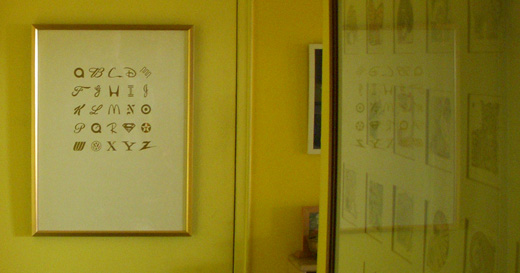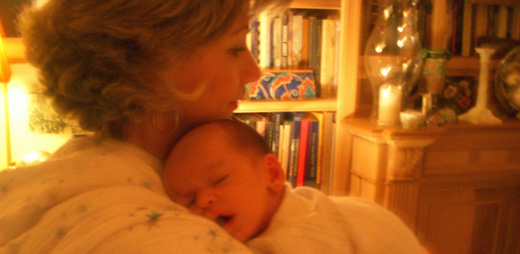
This afternoon, I made a beef stew, from a recipe that I made up as I went along. I don’t know whether I’ll like it, because that wasn’t part of the plan. Of course, I hope that I won’t hate it; but the idea was to cook a simple beef stew out of stuff on hand — to recreate, along purely imaginary lines, the French pot au feu, of which I have no experience whatsoever but which I envision as a pot on the fire, as the name indicates, full of long-cooked odds and ends. I read once that somewhere in the Garonne there is a pot au feu that has been simmering since the 1620s — a preposterously amusing thing to say. My own concoction will probably taste heavy and monochromatic, only slightly brightened by the handful of minced parsley that I’ll toss onto it at dinnertime. But that’s okay, as along as I can bear to eat it. If I can eat it while overlooking it, so much the better. When I’m alone, I read my way through meals. Â
I’ll be alone at dinner. Kathleen is on a plane, flying from St Croix to Miami. She’ll stay at an airport hotel and fly into New York early tomorrow. I can’t quite believe how much more flying time this itinerary involves — almost two hours more than connecting at San Juan. But one forgets how far west Miami is — Atlanta lies almost directly below Chicago. It was only when I looked at the globe and imagined drawing a circle with a compass centered on Miami that I could accept that St Croix and New York are roughly equidistant.
Kathleen had a wonderful time at the Buccaneer. Although she missed me, she wasn’t lonely, and she claims that she never talked to anyone but staff. This was the aftermath of fatigue, to be sure, but it also signaled Kathleen’s attention to take a rest from society. I had a bittersweet time listening to her daily accounts. Having been to the Buccaneer on three previous visits, I always knew what she was talking about, and I remembered what fun it wasv to walk this beach or to listen to that musician play after dinner. All week, I told myself that I really must get my affairs in order, so that by Thanksgiving-time I’ll have only the dreadfulness of flying and of being in airports to worry about.
I mustn’t fear, as I did quite viscerally ten days ago, that, if I left Manhattan Island, I would forget everything that I have learned about life in the past six months. I won’t elaborate; there’s no way that I could make sense of this anxiety in fewer than ten thousand words. The point is that, about six months ago, life began to make a lot of sense. Not life in general, but my life. I began to understand it, or feel that I understood it, for the first time. It has never been very important to me to understand my life — just one of the things about me that I didn’t really know until last fall — but now that I did, I found it very useful.
This week, while my friend Jean Ruaud piloted The Daily Blague, I thought seriously about taking a long break from blogging, so that I could devote myself exclusively to the pivotal project that I find myself in the middle of, the one that I jokingly call “I Am My Own Executor.” As I had no reason to believe that increased attention would actually speed things up — I’m very conscious of the way that insights have, these days, of falling down on me, like fruit that hasn’t been rushed to ripeness —I abandoned the idea of abandoning The Daily Blague. There’s no reason to doubt, in fact, that it was last year’s intensification of blogging effort (most notable in the Daily Office) that triggered the growth of this understanding that I’ve been talking about. There’s no question that the effort of reading thousands of Google Reader feeds a week, for months on end and with no prospect of ceasing, didn’t alter the quality of my life, at least for the first time since I stopped practicing law, over twenty years ago.
I just had a taste of the stew, and I think that it’s exactly what I had in mind.




















